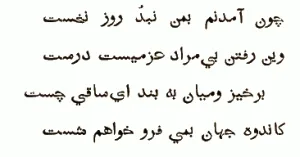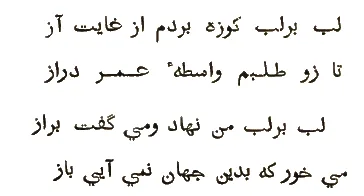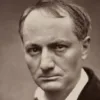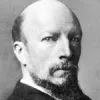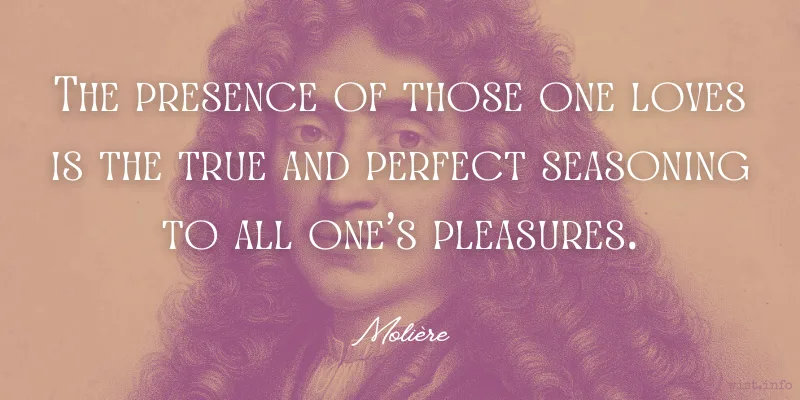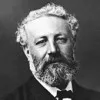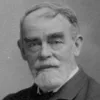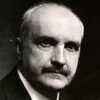He who tries to make his happiness depend too much on his reason, who holds it up for examination, who quibbles, as it were, with his delights, and admits no indelicate pleasures, ends by having none at all. He is a man who cards the wool of his mattress until nothing is left, and he ends by sleeping on the boards.
[Celui qui veut trop faire dépendre son bonheur de sa raison, qui le soumet à l’examen, qui chicane, pour ainsi dire, ses jouissances, et n’admet que des plaisirs délicats, finit par n’en plus avoir. C’est un homme qui, à force de faire carder son matelas, le voit diminuer, et finit par coucher sur la dure.]
Nicolas Chamfort (1741-1794) French writer, epigrammist (b. Nicolas-Sébastien Roch)
Products of Perfected Civilization [Produits de la Civilisation Perfectionée], Part 1 “Maxims and Thoughts [Maximes et Pensées],” ch. 2, ¶ 179 (1795) [tr. Merwin (1969)]
(Source)
(Source (French)). Alternate translations:He who allows his happiness to depend too much on reason, who submits his pleasures to examination, and desires enjoyments only of the most refined nature, too often ends by not having any at all.
[tr. De Finod (1884)]The man who makes his happiness too subject to his reason, who submits it to examination, who, as it were, quibbles with his enjoyment and recognizes only fastidious pleasures, will finish by having none at all. He is as one who makes his mattress smaller and smaller with assiduous carding until he ends by sleeping on the wood.
[tr. Mathers (1926)]One who wishes to make his happiness too much dependent on his reason, who examines his happiness closely, and who so to say quibbles with his enjoyments, ends by no longer having any. He is one who, by dint of having his mattress carded, sees it dwindle, and finishes by sleeping on the bare boards.
[tr. Pearson (1973)]Someone who wants his happiness to be too supported by reason, who examines it, who so to say quibbles over what he enjoys, and only allows himself pleasures that have delicacy, ends by not having any. He is a man who, because he wants his mattress to fit perfectly on his bed, continuously has to make it smaller, and ends up sleeping on the floor.
[tr. Siniscalchi (1994)]Anyone who relies too heavily on reason to achieve happiness, who analyses it, who so to speak quibbles over his enjoyment and can accept only refined pleasures, ends up not having any at all. He's like a man who wants to get rid of all the lumps in his mattress and eventually ends up sleeping on bare boards because he's made it too small.
[tr. Parmée (2003), ¶ 135]
Quotations about:
enjoyment
Note not all quotations have been tagged, so Search may find additional quotes on this topic.
Thrust into life without my own consent,
Thrust back to death, with who knows what intent?
Arise, bright saki, fill the cup with wine
And drown the burden of my discontent.
Omar Khayyám (1048-1123) Persian poet, mathematician, philosopher, astronomer [عمر خیام]
Rubáiyát [رباعیات], Bod. # 21 [tr. Roe (1906), # 44]
(Source)
A saki or sāqī (ساقی) means "wine-server" or "bartender."
Alternate translations:My coming was not of mine own design,
And one day I must go, and no choice of mine;
Come, light-handed cupbearer, gird thee to serve,
We must wash down the care of this world with wine.
[tr. Cowell (1858), # 8]What, without asking, hither hurried whence
And, without asking, wither hurried hence!
Another and another Cup to drown
The Memory of this Impertinence!
[tr. FitzGerald, 1st ed. (1859), # 30]What, without asking, hither hurried whence
And, without asking, wither hurried hence!
Ah, contrite Heav'n endowed us with the Vine
To drug the memory of that insolence.
[tr. FitzGerald, 2nd ed. (1868), # 33]What, without asking, hither hurried Whence?
And, without asking, Whither hurried hence!
Oh, many a Cup of this forbidden Wine
Must drown the memory of that insolence!
[tr. FitzGerald, 3rd ed. (1872), # 30; 4th ed. (1879); 5th ed. (1889)]O Cup-Bearer, since Time lurks hard by ready to shatter you and me, this world can never be an abiding dwelling for you and me. But come what may, assure yourself that God is in our hands while this cup of wine stands between you and me.
[tr. McCarthy (1879), # 35]I came not hither of my own free will,
And go against my wish, a puppet still;
Cupbearer! gird thy loins and fetch some wine;
To purge the world's despite, my goblet fill.
[tr. Whinfield (1883), # 110; (1882) # 641]Since hither, willy nilly, I came the other day
And hence must soon be going, without my yea or nay,
Up, cupbearer! thy middle come gird without delay;
The world and all its troubles with wine I 'll wash away.
[tr. Payne (1898), # 94]Seeing that my coming was not for me the Day of Creation,
and that my undesired departure hence is a purpose fixed for me,
get up and gird well thy loins, O nimble Cup bearer,
for I will wash down the misery of the world in wine.
[tr. Heron-Allen (1898), # 21]As my first coming was no wish of mine
So my departure I can not devise.
Gird thyself, Saki! Fair bright Saki rise,
Lest time should fail to drink this skin of wine.
[tr. Cadell (1899), # 37]Since coming at the first was naught of mine,
And I unwilling go by fixed design,
Cupbearer, rise! and quickly gird thy loins!
For worldly sorrows I'll wash down in wine!
[tr. Thompson (1906), # 157]I was not asked to choose my natal morn,
I die as helplessly as I was born.
Bring wine, and I will strive to wash away
The recollection of Creation's scorn.
[tr. Talbot (1908), # 21]Since my coming was not of my own choosing from
the first day, and my going has been irrevocably fixed without my will,
arise and gird thy loins, o nimble Sáqí, for I will
wash down the grief of the world with wine.
[tr. Christensen (1927), # 32]Since here I came unwilling and perforce,
To go unplanning is my proper course;
Arise O Guide! and girdle up thy waist,
And with Thy Word absolve me from remorse.
[tr. Tirtha (1941), # 8.72]My presence here has been no choice of mine;
Fate hounds me most unwillingly away.
Rise, wrap a cloth about your loins, my Saki,
And swill away the misery of this world.
[tr. Graves & Ali-Shah (1967), # 32]Since at first my coming was not at my will,
And the going is involuntarily imposed,
Arise, fasten your belt brisk wine-boy,
I'll drown the world's sorrow in wine.
[tr. Avery/Heath-Stubbs (1979), # 94]
There’s brief enjoyment in dishonorable pleasure.
[βραχεῖα τέρψις ἡδονῆς κακῆς]
Euripides (485?-406? BC) Greek tragic dramatist
Erectheus [Ἐρεχθεύς], frag. 362, l. 23 (TGF) (422 BC) [tr. Collard/Cropp (2008)]
(Source)
Part of the advice from Erechtheus to his son.
Nauck frag. 362, Barnes frag. 1, Musgrave frag. 2. (Source (Greek)). Alternate translations:The delight which sinful pleasure affords is short.
[tr. Wodhull (1809)]The enjoyment of unholy pleasure is of short duration.
[tr. Ramage (1895)]The enjoyment from a cheap pleasure is short.
[Source]
I enjoy life; I might almost say that with every year that passes I enjoy it more. This is due partly to having discovered what were the things that I most desired, and having gradually acquired many of these things. Partly it is due to having successfully dismissed certain objects of desire — such as the acquisition of indubitable knowledge about something or other — as essentially unattainable. But very largely it is due to a diminishing preoccupation with myself. Like others who had a Puritan education, I had the habit of meditating on my sins, follies, and shortcomings. I seemed to myself — no doubt justly — a miserable specimen. Gradually I learned to be indifferent to myself and my deficiencies; I came to centre my attention increasingly upon external objects: the state of the world, various branches of knowledge, individuals for whom I felt affection.
Bertrand Russell (1872-1970) English mathematician and philosopher
Conquest of Happiness, Part 1, ch. 1 “What Makes People Unhappy?” (1930)
(Source)
ARTHUR: I don’t want to die now, I’ve still got a headache! I don’t want to go to heaven with a headache, I’d be all cross and wouldn’t enjoy it.
Douglas Adams (1952-2001) English author, humourist, screenwriter
Hitchhiker’s Guide to the Galaxy, Phase 1, “Fit the 2nd” (BBC radio) (1978-03-15)
(Source)
The adaptation into the original novelization, Hitchhiker's Guide to the Galaxy, ch. 7 (1979), is nearly the same:"I don't want to die now!" he yelled. "I've still got a headache! I don't want to go to heaven with a headache, I'd be all cross and wouldn't enjoy it!"
Chuse such Pleasures, as recreate much, and cost little.
Thomas Fuller (1654-1734) English physician, preacher, aphorist, writer
Introductio ad Prudentiam, Vol. 1, # 61 (1725)
(Source)
Then to the Lip of this poor earthen Urn
I lean’d, the Secret of my Life to learn:
And Lip to Lip it murmur’d — “While you live,
“Drink! — for, once dead, you never shall return.”
Omar Khayyám (1048-1123) Persian poet, mathematician, philosopher, astronomer [عمر خیام]
Rubáiyát [رباعیات], Bod. # 100 [tr. FitzGerald, 3rd ed. (1872), # 35]
(Source)
The same translation was used by Fitzgerald for the 4th ed. (1879) and 5th ed. (1889).
Where there are numerological references (which multiple sources pull together as variations on this quatrain), they are based on the numbering: One man, two worlds, four elements, five senses, seven planets, eight heavens, nine spheres, ten powers.
Alternate translations:Lip to lip I passionately kissed the bowl,
To learn from it the secret of length of days;
Lip to lip in answer it whispered reply,
"Drink wine, for once gone thou shalt never return!"
[tr. Cowell (1858), # 25]Then to this earthen Bowl did I adjourn
My Lip the secret Well of Life to learn:
And Lip to Lip it murmur'd -- "While you live,
"Drink! -- for once dead you never shall return."
[tr. FitzGerald, 1st ed. (1859), # 34]Then to the Lip of this poor earthen Urn
I lean'd, the secret Well of Life to learn:
And Lip to Lip it murmur'd -- "While you live,
"Drink! -- for, once dead, you never shall return."
[tr. FitzGerald, 2nd ed. (1868), # 34]O offspring of the four and five, art puzzled by the four and five? Drink deep, for I have told thee time on time, that once departed, thou returnest no more.
[tr. McCarthy (1879), # 245]I put my lips to the cup, for I did yearn
The secret of the future life to learn;
And from his lip I heard a whisper drop,
"Drink! for once gone you never will return."
[tr. Whinfield (1882), # 149]I put my lips to the cup, for I did yearn
The means of gaining length of days to learn;
It leaned its lip to mine, and whispered low,
"Drink! for, once gone, you never will return."
[tr. Whinfield (1883), # 152, elsewhere # 274]I put my lips to the cup, for I did yearn
The hidden cause of length of days to learn;
He leaned its lip to mine, and whispered low,
"Drink! for, once gone, you never will return."
[tr. Whinfield (188?), # 274]Slave of four elements and sevenfold heaven,
Who aye bemoan the thrall of these eleven,
Drink! I have told you seventy times and seven,
Once gone, nor hell will send you back, nor heaven.
[tr. Whinfield (1882), #223]Child of four elements and sevenfold heaven,
Who fume and sweat because of these eleven,
Drink! I have told you seventy times and seven,
Once gone, nor hell will send you back, nor heaven.
[tr. Whinfield (1883), # 431]Sprung from the Four, and the Seven! I see that never
The four and the Seven respond to thy brain's endeavour --
Drink wine! for I tell thee, four times o'er and more,
Return there is none! -- Once gone, thou art gone for ever!
[tr. M. K. (1888)]Lip to lip with the jar you know not what is intended
That is to say my lip also was like your lips (employed)
In the end since existence is no longer available
Your lips should be thus employed according to the friendly order.
[tr. Heron-Allen (1897), Calcutta # 227]In great desire I pressed my lips to the lip of the jar,
To inquire from it how long life might be attained;
It joined its lip to mine and whispered: --
"Drink wine, for, to this world, thou returnest not."
[tr. Heron-Allen (1898), # 100]With strong desire my lips the cup's lip sought
From it the cause of weary life to learn.
Its lip pressed my lips close and whisperèd: --
"Drink, in this world no moment can return."
[tr. Cadell (1899), # 110]I prest my lip in yearning to the urn.
Thereby the means of length of life to learn.
And lip to my lip placed it whispered low,
"Drink! For to this world you will ne'er return!"
[tr. Thompson (1906), # 320]To the jar's mouth my eager lip I press'd,
For Life's Elixir making anxious quest;
It join'd its lip to mine, and whisper'd low --
"Drink wine: thou shalt not wake from thy last rest!"
[tr. Talbot (1908), # 100]I laid my lip to the lip of the wine-cup in the utmost
desire to seek from it the means of prolonging life.
It laid its lip to my lip and said mysteriously: "During
a whole life I was like thee; rejoice for a while in my company."
[tr. Christensen (1927), # 65]I placed my lip on the lip of the jug and caught from it
The means of attaining a long life.
The jug then seemed to say to me:
"For a lifetime I have been as you; now, for a while, be my companion."
[tr. Rosen (1928), # 177]My lip to lip of Jar I close in glee,
In hopes that life eternal I would see;
Then quoth the Jar: Like thee I once have been
For ages, hence a minute breathe with me."
[tr. Tirtha (1941), # 5.29]Greedily to the bowl my lips I pressed
and asked how might I sue for green old age.
Pressing its lips to mine it muttered darkly:
"Drink up! Once gone, you shall return no more!"
[tr. Graves & Ali-Shah (1967), # 36]I laid my lip against the pitcher's lip in the extremity of desire, that I might seek from it the means of long life: it laid (its) lip upon my lip and said secretly, "I too was (once) like thee: consort with me for a moment."
[tr. Bowen (1976), # 19, after Heron-Allen]I pressed my lip upon the Winejar's lip,
And questioned how long life I might attain;
Then lip to lip it whispering replied:
"Drink wine -- this world thou shalt not see again."
[tr. Bowen (1976), # 19]In the extremity of desire I put my lip to the pot's
To seek the elixir of life:
It put its lip on mine and murmured,
"Enjoy the wine, you'll not be here again."
[tr. Avery/Heath-Stubbs (1979), # 139]I brought the cup to my lips with greed
Begging for longevity, my temporal need
Cup brought its to mine, its secret did feed
Time never returns, drink, of this take heed.
[tr. Shahriari (1998), literal]The only secret that you need to know
The passage of time is a one way flow
If you understand, joyously you’ll grow
Else you will drown in your own sorrow.
[tr. Shahriari (1998), figurative]
There is this difference between those two temporal blessings health and money: money is the most envied, but the least enjoyed; health is the most enjoyed, but the least envied; and this superiority of the latter is still more obvious when we reflect that the poorest man would not part with health for money, but that the richest would gladly part with all their money for health.
Charles Caleb "C. C." Colton (1780-1832) English cleric, writer, aphorist
Lacon: Or, Many Things in Few Words, Vol. 1, § 225 (1820)
(Source)
There are two motives for reading a book: one, that you enjoy it; the other, that you can boast about it.
Bertrand Russell (1872-1970) English mathematician and philosopher
Conquest of Happiness, Part 1, ch. 3 “Competition” (1930)
(Source)
Of lingering and gain-seeking make an end;
Think, while there’s time, how soon Death’s pyre may blaze;
And some brief folly mix with prudent ways:
At the fit hour ’tis sweet to unbend.[Verum pone moras et studium lucri
nigrorumque memor, dum licet, ignium
misce stultitiam consiliis brevem:
dulce est desipere in loco.]Horace (65-8 BC) Roman poet, satirist, soldier, politician [Quintus Horatius Flaccus]
Odes [Carmina], Book 4, # 12, l. 25ff (4.12.25-28) (13 BC) [tr. Marshall (1908)]
(Source)
Usually subtitled by translators "To Virgil" or "Invitation to Virgil." There has been great controversy amongst scholars whether the Virgil mentioned in the ode refers to the famous poet who composed the Aeneid, among other works. The two knew each other, but that Virgil died in 19 BC. Some suggest this was an older poem of Horace's, finished and inserted into this later, final volume by him.
(Source (Latin)). Alternate translations:Think Life is short, forget thy fears,
And eager thoughts of Gain,
Short Folly mix with graver Cares,
'Tis decent sometimes to be vain.
[tr. Creech (1684)]Come, quit those covetous thoughts, those knitted brows,
Think on the last black embers, while you may,
And be for once unwise. When time allows,
'Tis sweet the fool to play.
[tr. Conington (1872)]But lay aside delay, and the desire of gain; and, mindful of the gloomy [funeral] flames, intermix, while you may, your grave studies with a little light gayety: it is delightful to give a loose on a proper occasion.
[tr. Smart/Buckley (1853)]To the winds with base lucre and pale melancholy ! --
In the flames of the pyre these, alas! will be vain,
Mix your sage ruminations with glimpses of folly, --
'T is delightful at times to be somewhat insane!
[tr. Martin (1864)]But put aside delays and care of gain,
Warned, while yet time, by the dark death-fires; mix
With thought brief thoughtlessness; to be unwise
In time and place is sweet.
[tr. Bulwer-Lytton (1870)]Then lay aside delays, pursuit of gain, and, mindful fo the funeral pyre, intermix, while it is permitted, a temporary foolishness with thy worldly plans. There is pleasure in indulging in folly on special occasions.
[tr. Elgood (1893)]Quick! ere the lurid death-fire's day,
Drive thou the lust of gain away!
Thy wisdom with unwisdom grace:
'Tis well to rave, in time and place.
[tr. Gladstone (1894)]Come! a truce to delay, and the desire of gain!
And, all mindful, in time, of the dark fun'ral fires.
Mingle with your grave plans some little folly's fling,
Sweet is folly at fitting times.
[tr. Phelps (1897)]Mingle a little folly with your wisdom; a little nonsense now and then is pleasant.
[Source (1908)]But put aside delay and thirst for gain, and, mindful of Death’s dark fires, mingle, while thou mayst, brief folly with thy wisdom. ’Tis sweet at the fitting time to cast serious thoughts aside.
[tr. Bennett (Loeb) (1912), "The Delights of Spring"]Quick, quit your usury. Time is fleet.
Think, while you may, of funeral flames,
And blend brief folly with your aims;
Folly, in folly's hour, is sweet.
[tr. Mills (1924)]Then come at once and pause for breath
In chasing wealth. Remembering death
And death's dark fires, mix, while you may,
Method and madness, work and play.
Folly is sweet, well-timed.
[tr. Michie (1963)]Don’t linger, don’t stop to be sensible,
Let a little folly mix with your wisdom,
Be aware of death’s dark fires:
Frivolity is sweet, in season.
[tr. Raffel (1983)]And, heedful of death's black fire, consent for a while
To mix a little pleasure in with your prudence.
It's right to be foolish when the time is right.
[tr. Ferry (1997)]Be mindful, while you may,
of black-smoked funeral pyres
and blend a bit of folly with your wisdom.
O it is sweet at the proper time
to play the fool!
[tr. Alexander (1999)]But abolish delay, and desire for profit,
and, remembering death’s sombre flames, while you can,
mix a little brief foolishness with your wisdom:
it’s sweet sometimes to play the fool.
[tr. Kline (2015), "Spring"]
Roald Dahl had Willy Wonka use the thematically similar line "A little nonsense now and then / Is relished by the wisest men" in both his screenplay for the movie Willy Wonka and the Chocolate Factory (1971) and in the book Charlie and the Great Glass Elevator. For more information in this variant and its possible origins, see Quote Origin: A Little Nonsense Now and Then is Relished by the Wisest Men – Quote Investigator®.
Wealth is not his that has it, but his that enjoys it.
Benjamin Franklin (1706-1790) American statesman, scientist, philosopher, aphorist
Poor Richard (1736 ed.)
(Source)
Mental pleasures never cloy: unlike those of the body, they are increased by repetition, approved of by reflection, and strengthened by enjoyment.
Charles Caleb "C. C." Colton (1780-1832) English cleric, writer, aphorist
Lacon: Or, Many Things in Few Words, Vol. 1, § 246 (1820)
(Source)
The poor have the same basic pleasures of the rich, and the rich will always resent it.
Mignon McLaughlin (1913-1983) American journalist and author
The Neurotic’s Notebook, ch. 1 (1963)
(Source)
Awl plezzures are lawful that don’t end in making us feel sorry.
[All pleasures are lawful that don’t end in making us feel sorry.]Josh Billings (1818-1885) American humorist, aphorist [pseud. of Henry Wheeler Shaw]
Everybody’s Friend, Or; Josh Billing’s Encyclopedia and Proverbial Philosophy of Wit and Humor, ch. 148 “Affurisms: Ink Brats” (1874)
(Source)
I had a very pleasant evening, however, though you will probably find out that there was no particular reason for it; but I do not think it worth while to wait for enjoyment until there is some real opportunity for it.
So Life’s year begins and closes;
Days, though short’ning, still can shine;
What though youth gave love and roses,
Age still leaves us friends and wine.
Put not oph till to-morrow what can be enjoyed to-day.
[Put not off till tomorrow what can be enjoyed today.]
Josh Billings (1818-1885) American humorist, aphorist [pseud. of Henry Wheeler Shaw]
Everybody’s Friend, Or; Josh Billing’s Encyclopedia and Proverbial Philosophy of Wit and Humor, ch. 148 “Affurisms: Ink Brats” (1874)
(Source)
IMMORALITY. The morality of those who are having a better time.
H. L. Mencken (1880-1956) American writer and journalist [Henry Lewis Mencken]
The Book of Burlesques, “The Jazz Webster” (1920)
(Source)
Variant:Immorality is the morality of those who are having a better time.
[Chrestomathy, ch. 30 "Sententiae" (1949)]
Since Joys are so uncertain; take Gladness when it comes.
Thomas Fuller (1654-1734) English physician, preacher, aphorist, writer
Introductio ad Prudentiam, Vol. 1, # 101 (1725)
(Source)
Do not, on a rainy day, ask your child what he feels like doing, because I assure you that what he feels like doing, you won’t feel like watching.
No play is rubbish if it pleases and if it takes money at the door.
You can’t have a picnic lunch unless the party carrying the basket comes.
All that [experience] really demonstrated was that our future would be the same as our past, and that the sin we had done once, and with loathing, we would do many times, and with joy.
Oscar Wilde (1854-1900) Irish poet, wit, dramatist
The Picture of Dorian Gray, ch. 4 (1891)
(Source)
The passage also occurs in ch. 3 of the original Lippincott's Monthly Magazine (1890-06) version.
As extracted into Oscariana and epigram form (e.g.), it is given in the present tense:All that it really demonstrates is that our future will be the same as our past, and that the sin we have done once, and with loathing, we shall do many times, and with joy.
That man is the richest whose pleasures are cheapest.
How little it takes to make life perfect! A good sauce, a cocktail after a hard day, a girl who kisses with her mouth half open!
H. L. Mencken (1880-1956) American writer and journalist [Henry Lewis Mencken]
A Little Book in C Major, ch. 4, § 21 (1916)
(Source)
There is no sweeter pleasure than to surprise a man by giving him more than he expected.
[Il n’est pas de plaisir plus doux que de surprendre un homme en lui donnant plus qu’il n’espère.]
Charles Baudelaire (1821-1867) French poet, essayist, art critic
Le Spleen de Paris (Petits Poèmes en Prose), No. 28 “The Counterfeit Money [La Fausse Monnaie]” (1869) [tr. Shipley (1919)]
(Source)
(Source (French)). Alternate translations:There is no sweeter pleasure than to surprise a man by giving him more than he expects.
[tr. Varèse (1970)]There is no sweeter pleasure than surprising a man by giving him more than he hopes for.
[tr. Kaplan (1989)]
[T]here is a vast difference between games and play. Play is played for fun, but games are deadly serious, and you do not play them to enjoy yourself.
Maurice Baring (1874-1945) English man of letters, writer, essayist, translator
The Puppet Show of Memory, ch. 5 “School” (1922)
(Source)
The more the pleasures of the body fade away, the greater to me is the pleasure and charm of conversation.
Plato (c.428-347 BC) Greek philosopher
The Republic [Πολιτεία], Book 1 (c. 375 BC) [tr. Jowett (1871)]
(Source)
Socrates recounting something said to him by Cephalus.
And why carry out one’s projects, since the project is sufficient pleasure in itself?
[Et à quoi bon exécuter des projets, puisque le projet est en lui-même une jouissance suffisante?]
Charles Baudelaire (1821-1867) French poet, essayist, art critic
Le Spleen de Paris (Petits Poèmes en Prose), No. 24 “Projects [Les Projets],” final words (1869) [tr. Varèse (1970)]
(Source)
(Source (French)). Alternate translations:And what is the good of carrying out a project, when the project itself gives me pleasure enough?
[tr. Hamburger (1946)]And what good is it to carry out plans, since planning itself is a sufficient delight?
[tr. Kaplan (1989)]And what good would it do to execute such plans, since planning is in itself sufficient enjoyment?
[tr. Waldrop (2009)]What good is it to accomplish projects, when the project itself is enjoyment enough?
[Various]
I am afraid that the pleasantness of an employment does not always evince its propriety.
Moderation. Small helpings. Sample a little bit of everything. These are the secrets of happiness and good health. You need to enjoy the good things in life, but you need not overindulge.
Julia Child (1912-2004) American chef and writer
“What I’ve Learned,” interview by MIke Sager, Esquire (2001-06)
(Source)
One cannot have too large a party. A large party secures its own amusement.
They that love Mirth, let them heartily Drink,
‘Tis the only Receipt to make Sorrow sink.Ben Jonson (1572-1637) English playwright and poet
“Private Entertainment of the King and Queen,” Highgate, London (1604-05-01)
(Source)
Receipt and recipe (both from the Latin recipe "you take this!") were originally used in English for medical formulations and prescriptions. "Receipt" was often abbreviated "Rt," which, as a ligature, looks like "℞" or "Rx" -- which is still used as an abbreviation a medical prescription.
Money is a singular thing. It ranks with love as man’s greatest source of joy. And with death as his greatest source of anxiety.
John Kenneth Galbraith (1908-2006) Canadian-American economist, diplomat, author
The Age of Anxiety, ch. 6 “The Rise and Fall of Money” (1977)
(Source)
You are the sun who heals all clouded sight.
Solving my doubts, you bring me such content
That doubt, no less than knowing, is delight.[O sol che sani ogne vista turbata,
tu mi contenti sì quando tu solvi,
che, non men che saver, dubbiar m’aggrata.]Dante Alighieri (1265-1321) Italian poet
The Divine Comedy [Divina Commedia], Book 1 “Inferno,” Canto 11, l. 91ff (11.91-93) [Dante] (1309) [tr. Kirkpatrick (2006)]
(Source)
Flattering Virgil before he asks another question. (Source (Italian)). Alternate translations:O you, who like the Sun each weaken'd sight
Relieve, and give such pleasure when you clear
My doubts, that I to raise them oft desire.
[tr. Rogers (1782), l. 89ff]Can I repent my doubts! illumin'd Bard,
When thus thy heav'nly words my doubts reward?
[tr. Boyd (1802), st. 14]O Sun! who healest all imperfect sight,
Thou so content’st me, when thou solv’st my doubt,
That ignorance not less than knowledge charms.
[tr. Cary (1814)]O Sun, that healest every troubled sight!
So full content, thou solving, doth ensue,
Glads me no less to doubt, than judge aright.
[tr. Dayman (1843)]O Sun! who healest all troubled vision, thou makest so glad when thou resolvest me, that to doubt is not less grateful than to know.
[tr. Carlyle (1849)]Thou sun, that clearest every clouded sight,
You so content me to dissolve the knot,
To know is scarce so pleasing as to doubt.
[tr. Bannerman (1850)]Oh, sun! thou healer of the troubled sight,
What thou declarest makes me so content,
That as in knowledge I rejoice in doubt.
[tr. Johnston (1867)]O Sun, that healest all distempered vision,
Thou dost content me so, when thou resolvest,
That doubting pleases me no less than knowing!
[tr. Longfellow (1867)]O Sun that healest every troubled sight, so dost thou content me when thou solvest, that doubting gives me no less pleasure than knowing.
[tr. Butler (1885)]O Sun, that healest every troubled sight.
Thou so contentest me when thou mak'st clear
Doubts, that no less than knowledge they delight.
[tr. Minchin (1885)]O Sun that healest every troubled vision, thou dost content me so, when thou explainest, that doubt, not less than knowledge, pleaseth me.
[tr. Norton (1892)]O sun, that bringest healing unto all clouded vision, thou grantest unto me such satisfaction in thine unravelling, that doubting doth delight me.
[tr. Sullivan (1893)]Oh! sun, who makest whole all troubled vision.
Thou dost content me so when thou resolvest
That doubt is joy to me, no less than knowledge.
[tr. Griffith (1908)]O Sun that healest all troubled sight, so dost thou satisfy me with the resolving of my doubts that it is no less grateful to me to question than to know.
[tr. Sinclair (1939)]O Sun, who heal'st all troubled vision, and so
Contentest me where thou doest certify,
That to doubt pleaseth not less than to know ....
[tr. Binyon (1943)]O Sun that healest all dim sight, thou so
Doest charm me in resolving of my doubt,
To be perplexed is pleasant as to know.
[tr. Sayers (1949)]O sun which clears all mists from troubled sight,
such joy attends your rising that I feel
as grateful to the dark as to the light.
[tr. Ciardi (1954)]O sun that heal every troubled vision, you do content me so, when you solve, that questioning, no less than knowing, pleases me.
[tr. Singleton (1970)]O sun that shines to clear a misty vision,
such joy is mine when you resolve my doubts
that doubting pleases me no less than knowing!
[tr. Musa (1971)]O sun that heals all sight that is perplexed,
when I ask you, your answer so contents
that doubting pleases me as much as knowing.
[tr. Mandelbaum (1980)]O sun who clears every obscure perception
You give such satisfaction when you enlighten me
That, not less than knowledge, doubt is agreeable.
[tr. Sisson (1981)]O sun, that makes all troubled vision clear,
You give solutions I am so contented with
That asking, no less than knowing, pleases me.
[tr. Pinsky (1994), l. 87ff]O sun that heals every clouded sight, you content me so when you resolve questions, that doubting is no less pleasurable than knowing.
[tr. Durling (1996)]O Sun, that heals all troubled sight, you make me so content when you explain to me, that to question is as delightful as to know.
[tr. Kline (2002)]O sun, you who heal all troubled sight,
you so content me by resolving doubts
it pleases me no less to question than to know.
[tr. Hollander/Hollander (2007)]O shining sun, healer of troubled vision,
I'm satisfied so well, my mind so settled,
That knowledge pleases me no more than asking questions!
[tr. Raffel (2010)]"Bright sun," I said, you calm these doubts of mine
As you heal any troubled sight. Such ease
You bring me that to question pleases me
Like being answered."
[tr. James (2013)]
I’m awfully sorry for people who are taken in by all of today’s dietary mumbo jumbo. They are not getting any enjoyment out of their food.
It is written that the last enemy to be vanquished is death. We should begin early in life to vanquish this enemy by obliterating every trace of the fear of death from our minds. Then can we turn to life and fill the whole horizon of our souls with it, turn with added zest to all the serious tasks which it imposes and to the pure delights which here and there it affords.
Felix Adler (1851-1933) German-American educator
Life and Destiny, Lecture 8 “Suffering and Consolation” (1903)
(Source)
When we are children we seldom think of the future. This innocence leaves us free to enjoy ourselves as few adults can. The day we fret about the future is the day we leave our childhood behind.
Patrick Rothfuss (b. 1973) American author
The Name of the Wind, ch. 12 “Puzzle Pieces Fitting” (2007)
(Source)
All the higher animals have methods of expressing pleasure, but human beings alone express pleasure when they do not feel it. This is called politeness and is reckoned among the virtues.
Bertrand Russell (1872-1970) English mathematician and philosopher
“On smiling,” New York American (1932-08-17)
(Source)
The reason some parents really enjoy their children is that they take the time to live with them.
Marcelene Cox (1900-1998) American writer, columnist, aphorist
“Ask Any Woman” column, Ladies’ Home Journal (1946-04)
(Source)
We should laugh before being happy, for fear of dying without having laughed.
[Il faut rire avant que d’être heureux, de peur de mourir sans avoir ri.]
Jean de La Bruyère (1645-1696) French essayist, moralist
The Characters [Les Caractères], ch. 4 “Of the Heart [Du Coeur],” § 63 (4.63) (1688) [tr. Stewart (1970)]
(Source)
(Source (French)). Alternate translations:We must laugh before we are happy, or else we may die before we have cause to laugh.
[Bullord ed. (1696)]We must laugh before we are happy, for fear we die before we laugh at all.
[Curll ed. (1713)]We must laugh before we are happy, or else we may die before we ever laugh at all.
[Browne ed. (1752)]We must laugh before we are happy, or else we may die before ever having laughed at all.
[tr. Van Laun (1885)]We must laugh before we are happy, for fear of dying before we have laughed.
[tr. Lee (1903), "Brief Reflections on Men and Things"]
It is generally admitted that most grown-up people, however regrettably, will try to have a good time.
Bertrand Russell (1872-1970) English mathematician and philosopher
“Who May Use Lipstick?” New York American (1931-09-14)
(Source)
Many pleasant things are better when they belong to someone else. You can enjoy them more that way. The first day, pleasure belongs to the owner; after that, to others. When things belong to others, we enjoy them twice as much, without the risk of losing them, and with the pleasure of novelty. Everything tastes better when we are deprived of it.
[Muchas cosas de gusto no se han de poseer en propiedad. Más se goza de ellas ajenas que propias. El primer día es lo bueno para su dueño, los demás para los extraños. Gózanse las cosas ajenas con doblada fruición, esto es, sin el riesgo del daño y con el gusto de la novedad. Sabe todo mejor a privación.]
Baltasar Gracián y Morales (1601-1658) Spanish Jesuit priest, writer, philosopher
The Art of Worldly Wisdom [Oráculo Manual y Arte de Prudencia], § 264 (1647) [tr. Maurer (1992)]
(Source)
(Source (Spanish)). Alternate translations:Many things that serve for pleasure, ought not to be peculiar. One enjoys more of what is another's, than of what belongs to himself. The first day is for the Master, and all the rest for Strangers. One doubly enjoys what belongs to others, that's to say, not only without fear of loss, but also with the pleasure of Novelty. Privation makes every thing better.
[Flesher ed. (1685), §263]Many things of Taste one should not possess oneself. One enjoys them better if another's than if one's own. The owner has the good of them the first day, for all the rest of the time they are for others. You take a double enjoyment in other men's property, being without fear of spoiling it and with the pleasure of novelty. Everything tastes better for having been without it.
[tr. Jacobs (1892)]Many of the things that bring delight should not be owned. They are more enjoyed if another's, than if yours; the first day they give pleasure to the owner, but in all the rest to the others: what belongs to another rejoices doubly, because without the risk of going stale, and with the satisfaction of freshness; everything tastes better after fasting.
[tr. Fischer (1937)]
It’s like this: if you have one piece of cake, and you eat it, that’s fine. If you have two pieces of cake, you should probably share some with a friend. But maybe not. Occasionally we could all use two pieces of cake. But if you have a whole cake, and you eat all of it, that’s not very cool. It’s not just selfish, it’s kinda sick and unhealthy.
Patrick Rothfuss (b. 1973) American author
“Concerning Cake, Bilbo Baggins and Charity,” Blog Entry (19 Jan 2014)
(Source)
I don’t enjoy any of the process of writing. I enjoy it when it goes on if it zings and it has great warmth and import and it’s successful. Yeah, that’s when I enjoy it. But during the desperate, tough time of creating it, there’s not much I enjoy about it. It tires me and lays me out, which is sort of the way I feel now. Tired.
Rod Serling (1924-1975) American screenwriter, playwright, television producer, narrator
“Rod Serling: The Facts of Life,” interview by Linda Brevelle (4 Mar 1975)
(Source)
The interview was held less than four months before his death from cancer.
Such is the life of man, nor wholly blest,
Nor wholly wretched; on her votaries Fortune
now smiles, then frowns. Since our prosperity
Is thus unstable, is not an exemption
From grief the greatest pleasure life can yield?[τοιόσδε ϑνητῶν τῶν ταλαιπώρων βίος’
οὔτ᾽ εὐτυχεῖ τὸ πάμπαν οὔτε δυστυχεῖ,
εὐδαιμονεῖ δὲ καύϑις οὐκ εὐδαιμονεῖ.
τί δῆτ᾽ ἐν ὄλβω μὴ σαφεῖ βεβηκότες
οὐ ξῶμεν ὡς ἥδιστα μὴ λυπούμενοι;]Euripides (485?-406? BC) Greek tragic dramatist
Antiope [Αντιοπη], frag. 196 (TGF, Kannicht) (c. 410 BC) (Amphion?) [tr. Wodhall (1809)]
(Source)
(Source (Greek)). Alternate translation:Such is the life of wretched mortals;
a man is neither wholly fortunate nor unfortunate;
why then, on entering prosperity which may be insecure,
do we not live as pleasantly as possible, without distress?
[Source]Such it is, the life of miserable mortals:
neither wholly fortunate nor unfortunate.
He is prosperous and then he is not prosperous.
Why then, when we stand in uncertain happiness,
do we not live as pleasurably as possible, without distress.
[tr. Will (2015)]
No pleasure has any taste for me when not shared with another: no happy thought occurs to me without my being irritated at bringing it forth alone with no one to offer it to.
[Nul plaisir n’a saveur pour moy sans communication. Il ne me vient pas seulement une gaillarde pensée en l’ame, qu’il ne me fasche de l’avoir produite seul, et n’ayant à qui l’offrir.]
Michel de Montaigne (1533-1592) French essayist
Essays, Book 3, ch. 9 “Of Vanity [De la vanité]” (c. 1587) (3.9) (1595) [tr. Screech (1987)]
(Source)
First appeared in the 1588 edition.
(Source (French)). Alternate translations:With me no pleasure is fully delightsome without communication and no delight absolute except imparted. I doe not so much as apprehend one rare conceipt, or conceive one excellent good thought in my minde, but me thinks I am much grieved and grievously perplexed to have produced the same alone and that I have no sympathizing companion to impart it unto.
[tr. Florio (1603)]There can be no Pleasure to me without Communication. There is not so much as a spritely Thought comes into my Mind, that it does not grieve me to have produc'd alone, and that I have no one to communicate it unto.
[tr. Cotton (1686)]There can be no pleasure to me without communication: there is not so much as a sprightly thought comes into my mind, that it does not grieve me to have produced alone, and that I have no one to communicate it to.
[tr. Cotton/Hazlitt (1877)]No pleasure has any savour for me without imparting it; not even a lively thought comes into my mind that I am not vexed at expressing it when alone and at having no one to offer it to.
[tr. Ives (1925)]No pleasure has any savor for me without communication. Not even a merry thought comes to my mind without my being vexed at having produced it alone without anyone to offer it to.
[tr. Frame (1943)]
If you cannot enjoy reading a book over and over again, there is no use reading it at all.
Life often begins after dark, and I’ve found too much of a good thing can be wonderful.
Mae West (1892-1980) American film actress
Goodness Had Nothing To Do With It, ch. 21 (1959)
(Source)
Of course, there are those who don’t eat lamb chops, for moral reasons. There are also those who rise before daybreak and leap into a cold shower in February; those hwo disapprove of idleness, gin rummy, slang, dancing, unauthorized sex, naps, socialism, and Jacuzzis for moral reasons. They enjoy it; moral indignation is a pleasure, often the only pleasure, in many lives. It’s also one of the few pleasures people feel obliged to force on other people.
The chief aim of education is to show you, after you make a livelihood, how to enjoy living; and you can live longest and best and most rewardingly by attaining and preserving the happiness of learning.
Gilbert Highet (1906-1978) Scottish-American classicist, academic writer, intellectual critic, literary historian
The Immortal Profession: The Joys of Teaching and Learning (1976)
(Source)
It is good for a professional to be reminded that his professionalism is only a husk, that the real person must remain an amateur, a lover of the work.
May Sarton (1912-1995) Belgian-American poet, novelist, memoirist [pen name of Eleanore Marie Sarton]
Journal of a Solitude, ch. 11 (1973)
(Source)
Men write history for the same reason they write poetry, study the properties of numbers, or play football — for the joy of creation; men read history for the same reason they listen to music or watch cricket — for the joy of appreciation.
A. J. P. Taylor (1906-1990) British historian, journalist, broadcaster [Alan John Percivale Taylor]
“The Historian,” Manchester Guardian (5 Aug 1938)
(Source)
We two will keep to the shelter here, eat and drink
and take some joy in each other’s heartbreaking sorrows,
sharing each other’s memories. Over the years, you know,
a man finds solace even in old sorrows, true, a man
who’s weathered many blows and wandered many miles.[νῶϊ δ᾽ ἐνὶ κλισίῃ πίνοντέ τε δαινυμένω τε
κήδεσιν ἀλλήλων τερπώμεθα λευγαλέοισι,
400μνωομένω: μετὰ γάρ τε καὶ ἄλγεσι τέρπεται ἀνήρ,
ὅς τις δὴ μάλα πολλὰ πάθῃ καὶ πόλλ᾽ ἐπαληθῇ.]Homer (fl. 7th-8th C. BC) Greek author
The Odyssey [Ὀδύσσεια], Book 15, l. 397ff (15.397) [Eumæus] (c. 700 BC) [tr. Fagles (1996)]
(Source)
(Source (Greek)). Alternate translations:We two, still in our tabernacle here
Drinking and eating, will our bosoms cheer
With memories and tales of our annoys.
Betwixt his sorrows ev’ry human joys,
He most, who most hath felt and furthest err’d.
[tr. Chapman (1616)]Meanwhile let us sit here, and drink and chat,
And stories of our sad adventures tell;
For much contentment there is ev’n in that,
To them that suffer’d have and come off well.
[tr. Hobbes (1675), l. 357ff]Here let us feast, and to the feast be joined
Discourse, the sweeter banquet of the mind;
Review the series of our lives, and taste
The melancholy joy of evils passed:
For he who much has suffered, much will know,
And pleased remembrance builds delight on woe.
[tr. Pope (1725)]But we with wine and a well-furnish’d board
Supplied, will solace mutually derive
From recollection of our sufferings past;
For who hath much endured, and wander’d far,
Finds the recital ev’n of sorrow sweet.
[tr. Cowper (1792), l. 483ff]But we two, drinking wine and eating bread,
Will charm our dear hearts each with other's pain.
Past sorrow, and the tears a man hath shed,
Who far hath wandered over earth and main,
Yield comfort.
[tr. Worsley (1861), st. 55]Let us, meanwhile,
Within this hut potations free enjoy,
And to our full contentment eat, while each
The mem'ry wakens of his own past griefs;
For, let but time enough elapse, the man
Who has sharp trials brook'd, and through the world
A wand'rer rov'd, will on his by-gone woe
Exulting dwell.
[tr. Musgrave (1869), l. 651ff]We two in the hut a' drinking and a' feasting,
We'll soothe each other with our doleful cares
Recounting them! for even sorrows bring
An after pleasure to the wight, I ween, --
His many woes and many wandrings past.
[tr. Bigge-Wither (1869)]But let us twain drink and feast within the steading, and each in his neighbour’s sorrows take delight, recalling them, for even the memory of griefs is a joy to a man who hath been sore tried and wandered far.
[tr. Butcher/Lang (1879)]But here in the booth we twain at the drink and the banqueting
Shall be merry with the memory of each other's weary woe.
For very grief shall gladden the man that to and fro
Hath wandered wide the world, and suffered sorrow sore.
[tr. Morris (1887)]But let us drink and feast within the lodge, and please ourselves with telling one another tales of piteous ill; for afterwards a man finds pleasure in his pains, when he has suffered logn and wandered long.
[tr. Palmer (1891)]We too will sit here eating and drinking in the hut, and telling one another stories about our misfortunes; for when a man has suffered much, and been buffeted about in the world, he takes pleasure in recalling the memory of sorrows that have long gone by.
[tr. Butler (1898)]But we two will drink and feast in the hut, and will take delight each in the other's grievous woes, as we recall them to mind. For in after time a man finds joy even in woes, whosoever has suffered much, and wandered much.
[tr. Murray (1919)]But we two snugly indoors here may drink and eat and revel in an interchange of sorrows-- sorrows that are memories, I mean; for when a man has endured deeply and strayed far from home he can cull solace from the rehearsal of old griefs.
[tr. Lawrence (1932)]Meanwhile let us two, here in the hut, over our food and wine, regale ourselves with the unhappy memories that each can recall. For a man who has been through bitter experiences and travelled far can enjoy even his sufferings after a time.
[tr. Rieu (1946)]Here's a tight roof; we'll drink on, you and I, and ease our hearts of hardships we remember, sharing old times. In later days a man can find a charm in old adversity, exile and pain.
[tr. Fitzgerald (1961)]But we two, sitting here in the shelter, eating and drinking,
shall entertain each other remembering and retelling
our sad sorrows. For afterwards a man who has suffered
much and wandered much has pleasure out of his sorrows.
[tr. Lattimore (1965)]Meanwhile let us two have the satisfaction of sharing our unhappy memories over our food and wine here in the hut. For a man who has been through bitter experiences and travelled far enjoys even his sufferings after a time.
[tr. DCH Rieu (2002)]We two will have our food and drink here in the hut and find pleasure in each other's sad troubles, as we call them to mind; for it is man's way to get enjoyment even from affliction, after the event, if he is a man who has suffered much and roamed far.
[tr. Verity (2016)]Now let us dine and drink in my home
And take pleasure while we recall to one another
Our grievous pains. For a man may take pleasure even in pain,
Later, when he has suffered and come through so many things.
[tr. @sentantiq (2016)]But let us, you and I, sit in my cottage over food and wine, and take some joy in hearing how much pain we each have suffered. After many years of agony and absence from one's home, a person can begin enjoying grief.
[tr. Wilson (2017)]But we two will drink and feast in the hut, and enjoy hearing about each other's wretched misfortunes as we recall them. A man looking back can find pleasure even in grief, one who's suffered and wandered much.
[tr. Green (2018)]But we two will drink and enjoy each other's sad stories.
[tr. Green (2018), summary version]We two will drink and feast here in the hut
and enjoy each other’s wretched troubles,
as we recall them. For once they’re over,
a man who’s done a lot of wandering
and suffered much gets pleasure from his woes.
[tr. Johnston (2019), l. 509ff]As we two drink and dine in this shelter
Let us take pleasure as we recall one another’s terrible pains.
For a man finds pleasure even in pains later on
After he has suffered so very many and survived many too.
[tr. @sentantiq [Joel] (2019)]Let us take pleasure in calling to mind each other’s terrible pains
while we drink and dine in my home.
For someone may even find pleasure among pains
when they have suffered many and gone through much.
[tr. @sentantiq (2020)]
People who love to eat are always the best people.
Julia Child (1912-2004) American chef and writer
(Attributed)
(Source)
Quoted in and title of a 2020 book of Child quotations, collected by the Julia Child Foundation for Gastronomy. Further source unknown.
No evil dooms us hopelessly except the evil we love, and desire to continue in, and make no effort to escape from.
George Eliot (1819-1880) English novelist [pseud. of Mary Ann Evans]
Daniel Deronda, Book 5, ch. 8 (1876)
(Source)
The essence of all art is to have pleasure in giving pleasure.
Mikhail Baryshnikov (b. 1948) Latvian-American dancer, choreographer, actor
“Baryshnikov: Gotta Dance,” Time (19 May 1975)
(Source)
Wise is he who instead of grieving over what he lacks delights in what he has.
[Εὐγνώμων ὁ μὴ λυπεόμενος ἐφ’ οἷσιν οὐκ ἔχει, ἀλλὰ χαίρων ἐφ’ οἷσιν ἔχει.]
Democritus (c. 460 BC - c. 370 BC) Greek philosopher
Frag. 231 (Diels) [tr. @sententiq (2016)]
(Source)
Original Greek. Diels citation "231 (61 N.)"; collected in Joannes Stobaeus (Stobaios) Anthologium III, 17, 25. Bakewell lists this under "The Golden Sayings of Democritus." Freeman notes this as one of the Gnômae, from a collection called "Maxims of Democratês," but because Stobaeus quotes many of these as "Maxims of Democritus," they are generally attributed to the latter. Alternate translations:
- "A sensible man takes pleasure in what he has instead of pining for what he has not." [tr. Bakewell (1907)]
- "The right-minded man is he who is not grieved by what he has not, but enjoys what he has." [tr. Freeman (1948)]
- "A man of sound judgement is not grieved by what he does not possess but rejoices in what he does possess." [tr. Barnes (1987)]
- "A sensible man does not grieve for what he has not, but enjoys what he has." [Source]
I don’t know whether my life has been a success or a failure But not having any anxiety about becoming one instead of the other, and just taking things as they come along, I’ve had a lot of extra time to enjoy life.
Arthur "Harpo" Marx (1888-1964) American comedian, actor, mime, musician [b. Adolph Marx]
Harpo Speaks!, ch. 1, opening words (1961) [with Rowland Barber]
(Source)
I almost wish we were butterflies and liv’d but three summer days — three such days with you I could fill with more delight than fifty common years could ever contain.
Those who live without enjoying life are fools.
[Ἀνοήμονες βιοῦσιν οὐ τερπόμενοι βιοτῆι.]
Democritus (c. 460 BC - c. 370 BC) Greek philosopher
Frag. 200 (Diels) [tr. @sententiq (2014)]
(Source)
I don’t think we injye other people’s suffin’, Hinnissy. It isn’t acshally injyement. But we feel betther f’r it.
[I don’t think we enjoy other people’s suffering, Hennessy. It isn’t actually enjoyment. But we feel better for it.]
Finley Peter Dunne (1867-1936) American humorist and journalist
Observations by Mr. Dooley, “Enjoyment” (1902)
(Source)
MAME: Yes! Life is a banquet, and most poor sons-of-bitches are starving to death! Live!
Jerome Lawrence (1915-2004) American playwright and author [b. Jerome Lawrence Schwartz]
Auntie Mame, Act 2, sc. 6 (1956) [with Robert E. Lee]
Based on the novel Patrick Dennis, Auntie Mame (1955), turned first into this Broadway play by Lawrence and Lee, a 1958 movie, then the musical Mame (1966), followed by a movie of the musical (1974). The line is original with Lawrence and Lee.
ACASTE: The presence of those one loves is the true and perfect seasoning to all one’s pleasures.
[C’est un merveilleux assaisonnement aux plaisirs qu’on goûte que la présence des gens qu’on aime.]
Molière (1622-1673) French playwright, actor [stage name for Jean-Baptiste Poquelin]
Le Misanthrope, Act 5, sc. 4 (1666) [tr. Wilbur (1954)]
(Source)
Reading a letter from Céliméne to Clitandre.
(Source (French)). Alternate translations:The presence of all those we love is an excellent relish to our pleasures.
[tr. Van Laun (1878)]The presence of people we love gives a wonderful relish to pleasures.
[tr. Mathew (1890)]It is a wonderful seasoning of all enjoyments to think of those we love.
[tr. Wormeley (1894)]The society fo those we love is a wonderful relish to our pleasure.
[tr. Waller (1903)]The presence of people we like gives a marvelous relish to our pleasures.
[tr. Page (1913)]The presence of people one is really fond of is the best seasoning for social amusements.
[tr. Bishop (1957)]A marvelous seasoning for the pleasures we enjoy is the presence of the persons we love.
[tr. Frame (1967)]
The aim of life is appreciation; there is no sense in not appreciating things; and there is no sense in having more of them if you have less appreciation of them.
Gilbert Keith Chesterton (1874-1936) English journalist and writer
The Autobiography of G. K. Chesterton (1936)
(Source)
Choose your pleasures for yourself, and do not let them be imposed upon you. Follow nature, and not fashion; weigh the present enjoyment of your pleasures against the necessary consequences of them, and then let your own common-sense determine your choice.
Lord Chesterfield (1694-1773) English statesman, wit [Philip Dormer Stanhope]
Letter to his son, #119 (27 Mar 1747)
(Source)
“Christmas a humbug, uncle!” said Scrooge’s nephew. “You don’t mean that, I am sure.”
“I do,” said Scrooge. “Merry Christmas! What right have you to be merry? What reason have you to be merry? You’re poor enough.”
“Come, then,” returned the nephew gaily. “What right have you to be dismal? What reason have you to be morose? You’re rich enough.”
Scrooge having no better answer ready on the spur of the moment, said “Bah!” again; and followed it up with “Humbug.”
Charles Dickens (1812-1870) English writer and social critic
A Christmas Carol, ch. 1 (1843)
(Source)
The author is like the host at a party. It is his party, but he must not enjoy himself so much that he neglects his guests. His enjoyment is not so much his own as it is theirs.
Charles P. Curtis (1891-1959) American attorney, legal scholar, author [Charles Pelham Curtis, Jr.]
A Commonplace Book (1957)
(Source)
Laugh if you are wise, O girl, laugh.
[Ride, si sapis, o puella, ride.]
Martial (AD c.39-c.103) Spanish Roman poet, satirist, epigrammatist [Marcus Valerius Martialis]
Epigrams [Epigrammata], Book 2, epigram 41 (2.41.1) (AD 86) [tr. Ker (1919)]
(Source)
"To Maximina." (Source (Latin)).
Martial says he thinks he's quoting Ovid, but it aligns with nothing known or still extant from that poet. As the phrase is hendecasyllabic, and Ovid is not known to have published anything in that meter, it is at the very least believed a paraphrase. It is still usually credited as a fragment for Ovid. It's ironic, since it is the point of this Martial epigram, that in Ars Amatoria 3.279ff, Ovid warns against laughing if one's teeth are bad; see Williams for more discussion.
Alternate translations:Laugh, my girl, laugh, if you bee wise.
[16th C Manuscript]Laugh, lovely maid, laugh oft, if thou art wise.
[tr. Killigrew (1695)]Laugh, my pretty damsel, laugh;
If thou'rt cunning, but by half.
[tr. Elphinston (1782), Book 6, Part 3, ep. 8]Smile, O damsel, if you are wise, smile.
[tr. Amos (1858), ch. 3, ep. 101]Laugh if thou art wise, girl, laugh.
[tr. Bohn's Classical (1859)]Laugh if you are wise, girl, laugh
[tr. Bohn's Classical (1871)]Laugh, if thou be wise.
[ed. Harbottle (1897)]Laugh, maiden, laugh, if thou be wise.
[tr. Pott & Wright (1921)]Smile, maiden, smile.
[tr. Francis & Tatum (1924), ep. 86]Laugh, girl, laugh if you're sensible.
[tr. Bovie (1970)]Laugh if you have any sense, girl, laugh.
[tr. Shackleton Bailey (1993)]Laugh, girl; if you're clever, laugh!
[tr. Williams (2004)]
I am all for the short and merry life.
Edward FitzGerald (1809-1883) English writer, poet, translator
Letter to Frederick Tennyson (31 Dec 1850)
(Source)
Later his epitaph.
The Cool Stuff Theory of Literature is as follows: All literature consists of whatever the writer thinks is cool. The reader will like the book to the degree that he agrees with the writer about what’s cool. And that works all the way from the external trappings to the level of metaphor, subtext, and the way one uses words. In other words, I happen not to think that full-plate armor and great big honking greatswords are cool. I don’t like ’em. I like cloaks and rapiers. So I write stories with a lot of cloaks and rapiers in ’em, ’cause that’s cool.
ALFRED: Because some men aren’t looking for anything logical, like money. They can’t be bought, bullied, reasoned or negotiated with. Some men just want to watch the world burn.
Christopher Nolan (b. 1970) English-American film director, screenwriter, producer
The Dark Knight (2008) [with Jonathan Nolan]
(Source)
We are of opinion that instead of letting books grow moldy behind an iron grating, far from the vulgar gaze, it is better to let them wear out by being read.
Jules Verne (1828-1905) French novelist, poet, playwright
Journey to the Center of the Earth (1864)
(Source)
Unless each day can be looked back upon by an individual as one in which he has had some fun, some joy, some real satisfaction, that day is a loss. It is un-Christian and wicked, in my opinion, to allow such a thing to occur.
Dwight David Eisenhower (1890-1969) American general, US President (1953-61)
Speech, Commencement, Dartmouth College (14 Jun 1953)
(Source)
What good is having laurels if you can’t rest on them?
Tom Lehrer (b. 1928) American mathematician, satirist, songwriter
People (11 Jan 1982)
(Source)
Lehrer has used the phrase and variants many times over the years.
I live my life in celebration and in praise of the life I’m living. What you focus on expands. The more you praise and celebrate your life, the more there is in life to celebrate. The more you complain, the more you find fault, the more misery and fault you will have to find.
Oprah Winfrey (b. 1954) American TV personality, actress
“Words of the Week,” Jet (27 Oct 1986)
(Source)
‘T is pity though, in this sublime world, that
Pleasure’s a sin, and sometimes sin’s a pleasure.
Please stop assuming that longevity and perfect health is always the correct option. No. Sometimes fun costs ya. It just does, you know? And that’s OK, you’re willing to make that purchase. Sammy Davis, Jr. was 64 when he died. Give me 64 Sammy-years, I’ll be happy.
A great many people (not you) do now seem to think that the mere state of being worried is in itself meritorious. I don’t think it is. We must, if it so happens, give our lives for others: but even while we’re doing it, I think we’re meant to enjoy Our Lord and, in Him, our friends, our food, our sleep, our jokes, and the birds’ song and the frosty sunrise.
C. S. Lewis (1898-1963) English writer, literary scholar, lay theologian [Clive Staples Lewis]
Letter to Alan Griffiths (20 Dec 1946)
(Source)
Life is much too important a thing ever to talk seriously about it.
Oscar Wilde (1854-1900) Irish poet, wit, dramatist
Vera; or, The Nihilists, Act 2 [Prince Paul] (1881)
(Source)
Almost always paraphrased, "Life is too important to be taken seriously."
In Lady Windermere's Fan, Act 2 (1892), he recycled the line as "Life is far too important a thing ever to talk seriously about it."
Also (mis)attributed to G.K. Chesterton. More discussion of this quotation: Life Is Too Important To Be Taken Seriously – Quote Investigator.
But we live through the fine days without noticing them; only when we fall on evil ones do we wish to have back the former. With sour faces we let a thousand bright and pleasant hours slip by unenjoyed and afterwards vainly sigh for their return when times are trying and depressing. Instead of this, we should cherish every present moment that is bearable, even the most ordinary, which with such indifference we now let slip by, and even with impatience push on.
[Aber wir verleben unsre schönen Tage, ohne sie zu bemerken: erst wann die schlimmen kommen, wünschen wir jene zurück. Tausend heitere, angenehme Stunden lassen wir, mit verdrießlichem Gesicht, ungenossen an uns vorüberziehn, um nachher, zur trüben Zeit, mit vergeblicher Sehnsucht ihnen nachzuseufzen. Statt dessen sollten wir jede erträgliche Gegenwart, auch die alltägliche, welche wir jetzt so gleichgültig vorüberziehn lassen, und wohl gar noch ungeduldig nachschieben.]
Arthur Schopenhauer (1788-1860) German philosopher
Parerga and Paralipomena, Vol. 1, “Aphorisms on the Wisdom of Life [Aphorismen zur Lebensweisheit],” ch. 5 “Counsels and Maxims [Paränesen und Maximen],” § 2.5 (1851) [tr. Payne (1974)]
(Source)
(Source (German)). Alternate translation:But we live through our days of happiness without noticing them; it is only when evil comes upon us that we wish them back. A thousand gay and pleasant hours are wasted in ill-humor; we let them slip by unenjoyed, and sigh for them in vain when the sky is overcast. Those present moments that are bearable, be they never so trite and common, -- passed by in indifference, or, it may be, impatiently pushed away.
[tr. Saunders (1890)]
Next to enjoying ourselves, the next greatest pleasure consists in preventing others from enjoying themselves, or, more generally, in the acquisition of power. Consequently those who live under the dominion of Puritanism become exceedingly desirous of power.
What will you think of pleasures when you no longer enjoy them?
Joseph Joubert (1754-1824) French moralist, philosopher, essayist, poet
Pensées [Thoughts], 1802 entry [tr. Auster (1983)]
(Source)
I could not find an analog in other translations of the Pensées.
This is perhaps a not unimportant counsel to give to writers: write nothing that does not give you great pleasure; emotion passes easily from writer to reader.
[Ce ne serait peut-être pas un conseil peu important à donner aux écrivains, que celui-ci: n’écrivez jamais rien qui ne vous fasse un grand plaisir; l’émotion se propage aisément de l’écrivain au lecteur.]
Joseph Joubert (1754-1824) French moralist, philosopher, essayist, poet
Pensées [Thoughts], ch. 23 “Des Qualités de l’Écrivain [Of the Qualities of Writers],” ¶ 58 (1850 ed.) [tr. Lyttelton (1899), ch. 22, ¶ 25]
(Source)
(Source (French)). Alternate translations:This were perhaps not an unimportant advice to give to writers: never write any thing that does not give you great enjoyment; emotion is easily propagated from the writer to the reader.
[tr. Calvert (1866), ch. 15]And perhaps there is no advice to give a writer more important than this: -- Never write anything that does not give you great pleasure.
[tr. Auster (1983)], 1823 entry]
The only time to eat diet food is while you’re waiting for the steak to cook.
Julia Child (1912-2004) American chef and writer
Quoted in Nancy Verde Barr, Backstage with Julia, ch. 3 (2007)
(Source)
Your work is going to fill a large part of your life, and the only way to be truly satisfied is to do what you believe is great work. And the only way to do great work is to love what you do. If you haven’t found it yet, keep looking. Don’t settle. As with all matters of the heart, you’ll know when you find it. And, like any great relationship, it just gets better and better as the years roll on. So keep looking. Don’t settle.
Steve Jobs (1955-2011) American computer inventor, entrepreneur
Commencement Address, Stanford University (2005)
(Source)
To love what you do and feel that it matters — how could anything be more fun?
Katharine Graham (1917-2001) American newspaper publisher
In “The Power That Didn’t Corrupt,” Ms. Magazine (Oct 1974)
More discussion of this quotation's origins here: To Love What You Do and Feel That It Matters—How Could Anything Be More Fun? – Quote Investigator.
Sometimes misquoted as "how could anything else be more fun".
Most people, when they are left free to fill their own time according to their choice are at a loss to think of anything sufficiently pleasant to be worth doing. And whatever they decide on, they are troubled by the feeling that something else would have been pleasanter. The ability to fill leisure intelligently is the last product of civilization, and at present very few people have reached this level.
Bertrand Russell (1872-1970) English mathematician and philosopher
Conquest of Happiness, Part 2, ch. 14 “Work” (1930)
(Source)
The time you enjoy wasting is not wasted time.
Bertrand Russell (1872-1970) English mathematician and philosopher
(Misattributed)
Misattributed to many modern authors besides Russell, including John Lennon, T. S. Elliot, and Soren Kierkegaard.
The frequent misattribution to Russell is from the phrase being used by Lawrence J. Peter in Peter's Quotations (1977) about a different Russell quote ("The thing that I should wish to obtain from money would be leisure with security"). In turn, the words were not original with Peter: the earliest citation for this quote is Marthe Troly-Curtin, Phyrnette Married, ch. 29 (1912).
More information on the history of this quotation: Time You Enjoy Wasting Is Not Wasted Time – Quote Investigator®.
Brace thee, my friend, when times are hard, to show
A mind unmoved; nor less, when fair thy state,
A sober joy. For Death doth wait
As surely, whether woe
Dogs all thy days, or fortune bids thee bask
On peaceful lawn reclined while life goes well,
And quaff thy wine, from inner cell
Drawn at Falernian cask.[Aequam memento rebus in arduis
servare mentem, non secus in bonis
ab insolenti temperatam
laetitia, moriture Delli,
seu maestus omni tempore vixeris
seu te in remoto gramine per dies
festos reclinatum bearis
interiore nota Falerni.]Horace (65-8 BC) Roman poet, satirist, soldier, politician [Quintus Horatius Flaccus]
Odes [Carmina], Book 2, # 3, l. 1ff (2.3.1-8) (23 BC) [tr. Marshall (1908)]
(Source)
Generally believed to be addressed to Quintus Dellius, but some scholars point to an older manuscript that refers to "Gelli" rather than "Delli," which then fits into various theories about themes in in Horace's works.
(Source (Latin)). Alternate translations:Keep still an equal minde, not sunk
With stormes of adverse chance, not drunk
With sweet Prosperitie,
O Dellius that must die,
Whether thou live still melancholy,
Or stretcht in a retired valley;
Make all thy howers merry
With bowls of choicest Sherrie.
[tr. Sir R. Fanshaw; ed. Brome (1666)]An even mind in every State,
Amidst the Frowns and Smiles of Fate,
Dear mortal Delius always show;
Let not too much of cloudy Fear,
Nor too intemperate joys appear
Or to contract, or to extend thy Brow:
Whether thy dull unhappy Years
Run slowly clog'd with Hopes and Fears,
And sit too heavy on thy Soul;
Or whether crown'd on Beds of Flowers
Mirth softly drives thy easy hours
And cheers thy Spirits with the choicest Bowl.
[tr. Creech (1684)]An equal mind, when storms o'ercloud,
Maintain, nor 'neath a brighter sky
Let pleasure make your heart too proud,
O Dellius, Dellius! sure to die,
Whether in gloom you spend each year,
Or through long holydays at ease
In grassy nook your spirit cheer
With old Falernian vintages.
[tr. Conington (1872)]O Dellius, since thou art born to die, be mindful to preserve a temper of mind even in times of difficulty, as well an restrained from insolent exultation in prosperity: whether thou shalt lead a life of continual sadness, or through happy days regale thyself with Falernian wine of the oldest date, at ease reclined in some grassy retreat.
[tr. Smart/Buckley (1853)]Let not the frowns of fate
Disquiet thee, my friend,
Nor, when she smiles on thee, do thou, elate
With vaunting thoughts, ascend
Beyond the limits of becoming mirth,
For, Dellius, thou must die, become a clod of earth!
Whether thy days go down
In gloom, and dull regrets.
Or, shunning life's vain struggle for renown,
Its fever and its frets,
Stretch'd on the grass, with old Falernian wine.
Thou giv'st the thoughtless hours a rapture all divine.
[tr. Martin (1864)]With a mind undisturbed take life's good and life's evil,
Temper grief from despair, temper joy from vainglory;
For, through each mortal change, equal mind,
O my Dellius, befits mortal-born,
Whether all that is left thee of life be but trouble,
Or, reclined at thine ease amid grassy recesses,
Thy Falernian, the choicest, records
How serenely the holidays glide.
[tr. Bulwer-Lytton (1870)]An even mind in days of care,
And in thy days of joy to bear
A chastened mood, remember: why?
'Tis, Dellius, that thou hast to die.
Alike, if all thy life be sad,
Or festal season find thee glad,
On the lone turf at ease recline,
And quaff thy best Falernian wine.
[tr. Gladstone (1894)]See thou preserve a true equanimity
In seasons adverse, and in prosperity
A mind restrain'd from overweening
Joy, for, my Dellius, thou art mortal!
Whether in sorrow all thy life long thou live,
Or in a distant glade on some holiday,
Thou lie at ease, the summer day long,
Quaffing the specially-mark'd Falernian.
[tr. Phelps (1897)]An even mind remember to preserve
In arduous times, conversely, in the good
One tinctured with no overweening joy.
For you will die (Gillo)
Whether you live at all times sad,
Or whether on distant lawn reclined
Through days of feast you are made glorious
From inmost cellar of Falernian.
[tr. Garnsey (1907)]Remember, when life’s path is steep, to keep an even mind, and likewise, in prosperity, a spirit restrained from over-weening joy, Dellius, seeing thou art doomed to die, whether thou live always sad, or reclining in grassy nook take delight on holidays in some choice vintage of Falernian wine.
[tr. Bennett (Loeb) (1912)]Remember, Dellius, doomed to die
Some day, to keep a level mind
When times are hard, nor pridefully
Exalt your horn when Fate seems kind --
Aye, doomed to die, whether each dawn
Renews your griefs, or days of rest
Comfort you, couched on some far lawn,
With old Falernian of the best.
[tr. Mills (1924)]Maintain an unmoved poise in adversity;
Likewise in luck one free of extravagant
Joy. Bear in mind my admonition,
Dellius. Whether you pass a lifetime
Prostrate with gloom, or whether you celebrate
Feast-days with choice old brands of Falernian,
Stretched out in some green, unfrequented
Meadow, remember your death is certain.
[tr. Michie (1963)]Remember, Dellius: keep yourself in
Balance when it’s hard, keep yourself in
Balance when all of it comes your way,
All of us destined to die
Whether we live forever sad
Or always lying in some grassy spot,
Celebrating life away
With a jug of choice Falernian.
[tr. Raffel (1983)]When things are bad, be steady in your mind;
Dellius, don't be
Too unrestrainedly joyful in good fortune.
You are going to die.
It doesn't matter at all whether you spend
Your days and nights in sorrow,
Or, on the other hand, in holiday pleasure,
Drinking Falernian wine
Of an excellent vintage year, on the river bank.
[tr. Ferry (1997)]Remember, entrapped in life’s bitter maze,
to keep an even mind. Even in prosperity
do not give way to unbridled joy.
Remember, you must die, O Dellius,
Whether you live always embrued in melancholy
or languidly laying in a far-off meadow
on festive days, you take delight in
some choice vintage of Falernian wine.
[tr. Alexander (1999)]When things are troublesome, always remember,
keep an even mind, and in prosperity
be careful of too much happiness:
since my Dellius, you’re destined to die,
whether you live a life that’s always sad,
or reclining, privately, on distant lawns,
in one long holiday, take delight
in drinking your vintage Falernian.
[tr. Kline (2015)]
God Almighty first planted a garden. And indeed it is the purest of human pleasures.
Francis Bacon (1561-1626) English philosopher, scientist, author, statesman
“Of Gardens,” Essays, No. 46 (1625)
(Source)
Love what you do. Get good at it. Competence is a rare commodity in this day and age. And let the chips fall where they may.
Jon Stewart (b. 1962) American satirist, comedian, and television host. [b. Jonathan Stuart Leibowitz]
Commencement Address, College of William & Mary (2004-05-20)
(Source)
I believe in the gospel of Good Living. You can not make any god happy by fasting. Let us have good food, and let us have it well cooked — and it is a thousand times better to know how to cook than it is to understand any theology in the world.
Robert Green Ingersoll (1833-1899) American lawyer, agnostic, orator
“What Must We Do to Be Saved?” Sec. 11 (1880)
(Source)
All animals, except man, know that the principal business of life is to enjoy it.
Samuel Butler (1835-1902) English novelist, satirist, scholar
The Way of All Flesh, ch. 19 (1903)
Full text.
YESTERDAY This Day’s Madness did prepare;
TO-MORROW’S Silence, Triumph, or Despair:
Drink! for you know not whence you came, nor why:
Drink! for you know not why you go, nor where.Omar Khayyám (1048-1123) Persian poet, mathematician, philosopher, astronomer [عمر خیام]
Rubáiyát [رباعیات], Bod. # 26 [tr. FitzGerald, 3rd ed. (1872), # 74]
(Source)
FitzGerald used the same text for subsequent editions.
Alternate translations:Ah, fill the Cup: -- what boots it to repeat
How Time is slipping underneath our Feet:
Unborn To-morrow and dead Yesterday,
Why fret about them if To-day be sweet!
[tr. FitzGerald, 1st ed. (1859), # 37]Yesterday This Day's Madness did prepare;
To-morrow's Silence, Triumph, or Despair:
Drink! for you know not whence you came, nor why:
Drink! for you know not why you go, nor where.
[tr. FitzGerald, 2nd ed. (1868), # 80]Be on your guard, my friend, for you will be sundered from your soul, you will pass behind the curtain of the secrets of heaven. Drink wine, for you know not whence you come. Be merry, for you know not where you go.
[tr. McCarthy (1879), # 180]O soul, so soon to leave this coil below,
And pass the dread mysterious curtain through,
Be of good cheer, and joy you while you may,
You wot not whence you come, nor whither go.
[tr. Whinfield (1882), # 40]Make haste! soon must you quit this life below,
And pass the veil, and Allah's secrets know;
Make haste to take your pleasure while you may,
You wot not whence you come, nor whither go.
[tr. Whinfield (1883), # 48 or 87]Ah Brother, but a little while, and Thou shalt find
Thy Lasting Home the 'Secret Veil' behind; --
Rejoice Thy Heart and banish Grief, for know, --
Thy source, Thy Goal, has never been defined.
[tr. Garner (1887), 7.8]Ah, brother, but a little while and thou shalt find
Eternal rest, the secret veil behind;
Rejoice thy heart and banish grief, for know --
Thy source, thy goal, has never been divined.
[tr. Garner (1898), # 148]'Tis a strange world we came to, You and I,
Whence no man knows, and surely none knows why,
Why we remain -- a harder question still,
And still another -- whither when we die?
[tr. Le Gallienne (1897)]Bethink thee that soulless and bare thou shalt go;
The veil of God's mysteries to tear thou shalt go:
Drink wine, for thou knowest not whence thou hast come;
Live blithe, for thou knowest not where thou shalt go.
[tr. Payne (1898), # 188]Know this --- that from thy soul thou shalt be separated,
thou shalt pass behind the curtain of the secrets of God.
Be happy -- thou knowest not whence thou hast come:
drink wine - thou knowest not whither thou shalt go.
[tr. Heron-Allen (1898), # 26]Thou shalt be parted from thy soul, and then,
Enter God's veil of mystery again;
Be glad! For whence you came you do not know;
Drink! For you wist as little where you go.
[tr. Cadell (1899), # 26]Soon shall you bid farewell to mortal tie;
Soon shall you read life's deepest mystery.
Drink, for you know not when you go, nor where;
Drink, for you know not whence you came, nor why.
[tr. Roe (1906), # 35]Since from your soul you separate, then know
Behind God's secret veil you will go, too;
Drink wine! for you know not whence you have come;
Be jocund! for you know not where you go!
[tr. Thompson (1906), # 136]Know this, that soon thou diest, and thy soul
The Book of God's Great Secret must unroll;
Be happy! knowing not whence thou hast come,
Nor whither thou shalt go. Drink out the Bowl!
[tr. Talbot (1908), # 26]Know that thou shalt depart, deprived of thy soul; thou
shalt go behind the veil of the mystery of annihilation.
Drink wine: thou knowest not whence thou art come.
Be merry! thou knowest not whither thou shalt go.
[tr. Christensen (1927), # 15]Ye go from soul asunder this ye know,
And that ye creep, behind His curtain low;
Hence sing His Name, ye know not whence ye came,
And live sedate, ye know not where to go.
[tr. Tirtha (1941), 9.99]What, without asking, hither hurried whence?
And, without asking, whither hurried hence!
Another and another cup to drown
The Memory of this impertinence.
[tr. Graves & Ali-Shah (1967)]
if you are writing without zest, without gusto, without love, without fun, you are only half a writer. It means you are so busy keeping one eye on the commercial market, or one ear peeled for the avant-garde coterie, that you are not being yourself. You don’t even know yourself. For the first thing a writer should be is — excited. He should be a thing of fevers and enthusiasms. Without such vigor, he might as well be out picking peaches or digging ditches; God knows it’d be better for his health.
Ray Bradbury (1920-2012) American writer, futurist, fabulist
“The Joy of Writing,” Zen & the Art of Writing and The Joy of Writing, Capra Chapbook No. 13 (1973)
(Source)
Reprinted in Bradbury, Zen in the Art of Writing (1990).
IAGO: Pleasure and action make the hours seem short.
William Shakespeare (1564-1616) English dramatist and poet
Othello, Act 2, sc. 3, l. 400 (2.3.400) (1603)
(Source)
ANTONY: To business that we love we rise betime
And go to ’t with delight.William Shakespeare (1564-1616) English dramatist and poet
Antony and Cleopatra, Act 4, sc. 4, l. 27ff (4.4.27-28) (1607)
(Source)
HAL: If all the year were playing holidays,
To sport would be as tedious as to work,
But when they seldom come, they wished-for come,
And nothing pleaseth but rare accidents.William Shakespeare (1564-1616) English dramatist and poet
Henry IV, Part 1, Act 1, sc. 2, l. 211ff (1.2.211-212) (1597)
(Source)
MESSENGER: Frame your mind to mirth and merriment,
Which bars a thousand harms, and lengthens life.William Shakespeare (1564-1616) English dramatist and poet
Taming of the Shrew, Induction, sc. 2, l. 137ff (c. 1591)
(Source)
To condemn spontaneous and delightful occupations because they are useless for self-preservation shows an uncritical prizing of life regardless of its contents.
George Santayana (1863-1952) Spanish-American poet and philosopher [Jorge Agustín Nicolás Ruíz de Santayana y Borrás]
The Sense of Beauty, Part 1 “The Nature of Beauty,” sec. 4 “Work and Play” (1896)
(Source)
One half of the world cannot understand the pleasures of the other.
This is in fact the test and use of a man’s education, that he finds pleasure in the exercise of his mind.
Jacques Barzun (1907-2012) French-American historian, educator, polymath
Essay (1950-10-15), “The Educated Man,” Life Magazine
(Source)
More commonly given as "The test and use of a man's education is that he finds pleasure in the exercise of his mind."
Essay collected, under the same name, in Barzun, Begin Here: The Forgotten Conditions of Teaching and Learning, ch. 15 (1991).
Most people are willing to pay more to be amused than to be educated.
Robert C. Savage (1914-1987) American Christian missionary, pastor, hymnologist, author
Life Lessons (1993)
(Source)
There is nothing better for a man, than that he should eat and drink, and that he should make his soul enjoy good in his labour.
The Bible (The Old Testament) (14th - 2nd C BC) Judeo-Christian sacred scripture [Tanakh, Hebrew Bible], incl. the Apocrypha (Deuterocanonicals)
Ecclesiastes 2:24 [KJV (1611)]
(Source)
Alternate translations:There is no happiness for man but to eat and drink and to be content with his work.
[JB (1966)]The best thing we can do is eat and drink and enjoy what we have earned.
[GNT (1976)]There is nothing worthwhile for a man but to eat and drink and afford himself enjoyment with his means.
[JPS (1985)]There is nothing better for mortals than to eat and drink and find enjoyment in their toil.
[NRSV (1989 ed.)]
Choose a job you love, and you will never have to work a day in your life.
Confucius (c. 551- c. 479 BC) Chinese philosopher, sage, politician [孔夫子 (Kǒng Fūzǐ, K'ung Fu-tzu, K'ung Fu Tse), 孔子 (Kǒngzǐ, Chungni), 孔丘 (Kǒng Qiū, K'ung Ch'iu)]
(Spurious)
We hear of the conversion of water into wine at the marriage in Cana, as of a miracle. But this conversion is, through the goodness of God, made every day before our eyes. Behold the rain which descends from heaven upon our vineyards, and which incorporates itself with the grapes to be changed into wine; a constant proof that God loves us, and loves to see us happy!
Benjamin Franklin (1706-1790) American statesman, scientist, philosopher, aphorist
Letter to Abbé Morallet (1779)
(Source)
Apparent origin of the misquote: "Beer is proof that God loves us and wants us to be happy."
Go, eat your bread in gladness, and drink your wine in joy.
The Bible (The Old Testament) (14th - 2nd C BC) Judeo-Christian sacred scripture [Tanakh, Hebrew Bible], incl. the Apocrypha (Deuterocanonicals)
Ecclesiastes 9: 7 [JPS (1985)]
(Source)
Alternate translations:Go thy way, eat thy bread with joy, and drink thy wine with a merry heart.
[KJV (1611)]Go, eat your bread with joy and drink your wine with a glad heart.
[JB (1966)]Go ahead -- eat your food and be happy; drink your wine and be cheerful.
[GNT (1976)]Go, eat your bread with enjoyment and drink your wine with a merry heart.
[NRSV (1989 ed.)]


